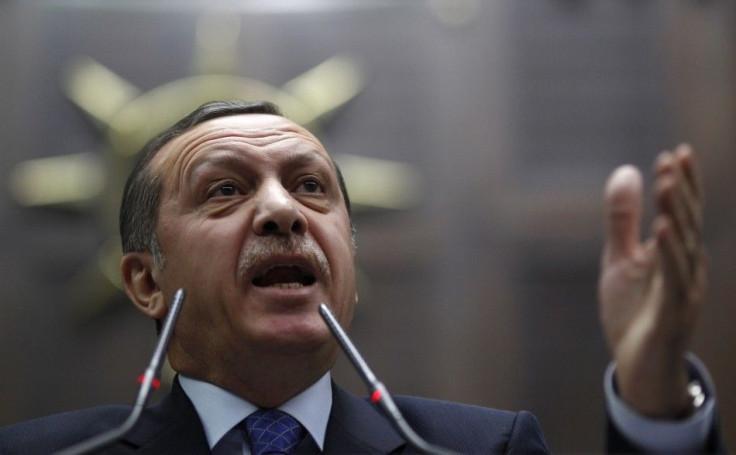Turkey's President Erdoğan Says Women's Position In Society Is For Motherhood

Turkey's President Recep Tayyip Erdoğan said Monday at a women's rights summit in Istanbul that women and men cannot be equal because it is "against nature," claiming that women and men have inherently different roles in society. Erdoğan, a devout Muslim, made statements during his time as prime minister that suggested he held conservative ideas about women's rights, but his speech Monday underscores just how strongly he rejects the notion that women should have the same civil liberties as men.
"You cannot get women to do every kind of work men can do, as in Communist regimes," he said. "You cannot tell them to go out and dig the soil. This is against their delicate nature."
Erdoğan attacked feminists in his speech, claiming they "reject the concept of motherhood."
"Our religion (Islam) has defined a position for women (in society): motherhood," Erdoğan said. "Some people can understand this, while others can't. You cannot explain this to feminists because they don't accept the concept of motherhood."
Erdoğan expanded his message, saying that women should each have at least three children and that abortion was "murder." He also said he was against the morning-after pill.
Opponents of Erdoğan took to Twitter to protest the president's statements, some claiming that he is "backwards," others saying he "is digging himself a grave."
Step away from the shovel, Erdogan! #ErdoganMustGo
— Mark Sparrow (@MarkGSparrow) November 24, 2014Erdoğan's statements Monday marked the first time the president officially said he did not believe men and women should have equal rights. His previous statements, though conservative, did not clearly address his stance on the issue.
Erdoğan's opinions on women's rights are shared by members of his party. In July one of Erdoğan's senior party officials said women should not laugh loudly in public.
"A man should be moral but women should be moral as well, they should know what is decent and what is not decent," Deputy Prime Minister Bulent Arinc, one of the co-founders of the ruling Islamic-rooted Justice and Development Party (AKP), said in a speech. "She should not laugh loudly in front of all the world and should preserve her decency at all times."
Since becoming prime minister in 2003, Erdoğan and his Justice and Development Party (AKP) have influenced the Turkish political landscape by introducing increasingly conservative legislation in parliament. Today, Turkey ranks 120th of 136 nations in the World Economic Forum’s 2013 Gender Gap Index, down 15 places since 2006.
The Turkish government, now thought of as a mostly conservative Muslim entity, has experienced backlash from the younger Turkish generation not only for its stance on women's rights issues, but also for its crackdown on freedom of expression, press and assembly.
In May 2013, thousands of Turkish youth gathered in Gezi Park to protest against Erdoğan's crackdown. The protesters used social media to articulate their demands to the central government, and Erdoğan called social media the "worst menace to society." In March 2014, Erdoğan banned Twitter in the country, though it was still available on the site's SMS service, which allowed citizens to text in a tweet. The ban on the social media site was eventually lifted by the country's constitutional court.
© Copyright IBTimes 2025. All rights reserved.





















